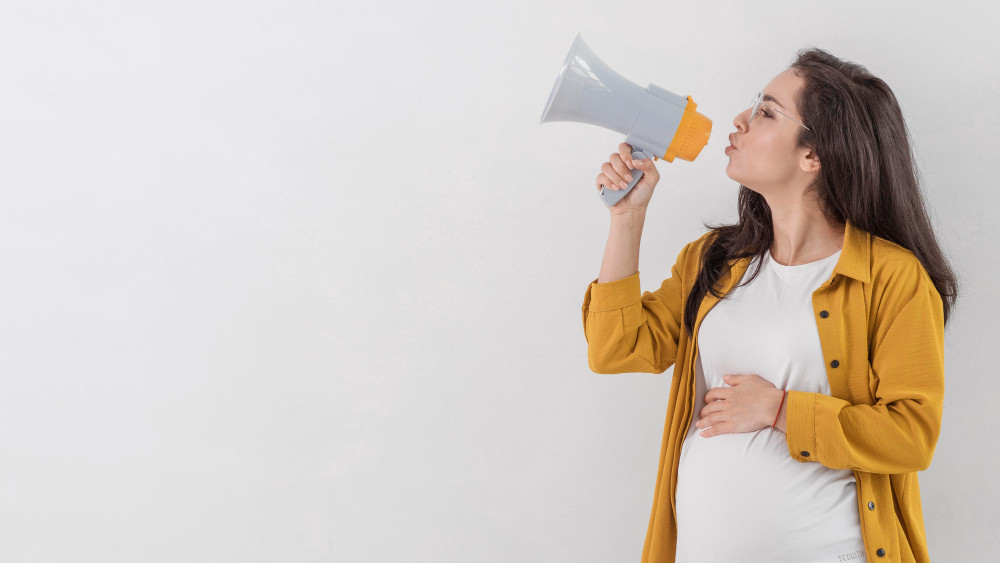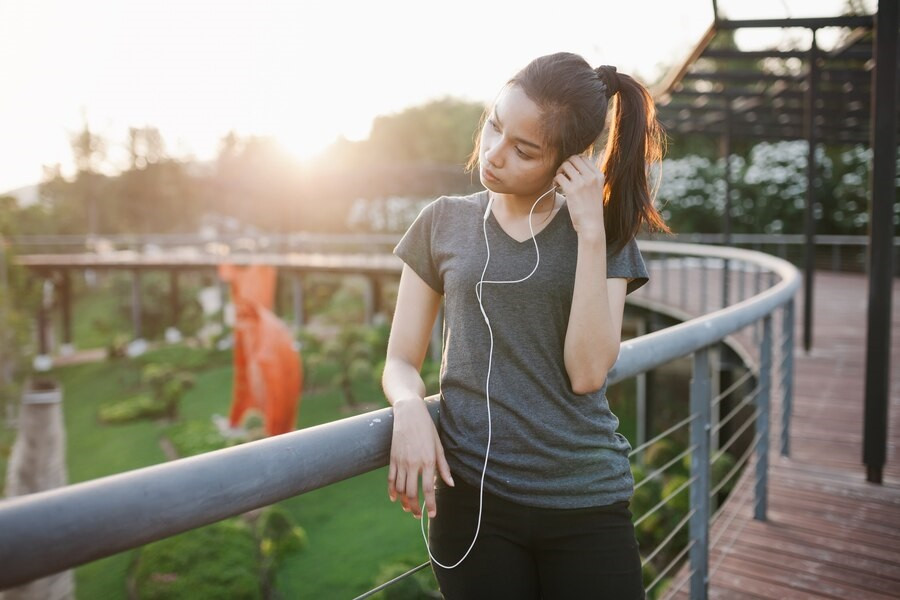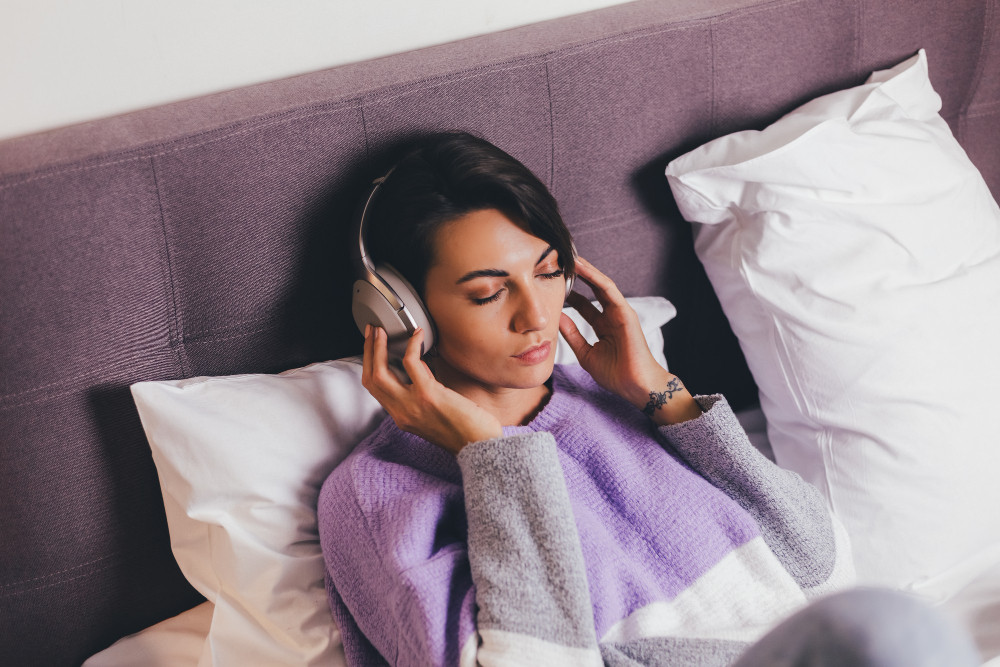Ajang adu bising speaker musik sebenarnya sudah lama dikenal di beberapa bagian wilayah Indonesia, khususnya di Jawa Timur sejak tahun 2019. Pesertanya harus menyusun speaker menjadi beberapa kemudian memutar musik remix dengan volume super kencang yang memekakkan telinga, bahkan menggetarkan jendela kaca bangunan.
Bahaya Mendengarkan Musik Terlalu Keras
Fenomena ajang adu bising speaker musik ternyata mengundang banyak orang yang tertarik mendengarkan langsung dan menikmati musik yang bising. Namun, CDC mencatat bahwa mendengarkan musik terlalu keras secara terus-menerus dapat berdampak negatif bagi kesehatan Anda.
Beberapa bahaya yang mungkin timbul akibat mendengarkan musik terlalu keras, antara lain:
Tinitus
Tinitus adalah kondisi berdenging pada salah satu atau kedua telinga. Denging atau bising yang Anda dengar bukan berasal dari sumber suara eksternal dan orang lain biasanya tidak mendengarnya. Kondisi ini bisa disebabkan oleh penuaan atau sering mendengar suara terlalu keras dalam waktu lama. Suara ini bisa sangat mengganggu dan memengaruhi aktivitas keseharian Anda.
Baca Juga: Tanda-Tanda Gendang Telinga Pecah dan Penanganan yang Harus Dilakukan
Gangguan keseimbangan
Telinga tidak hanya berfungsi untuk mendengar suara, namun juga berperan dalam keseimbangan tubuh. Terdapat organ di telinga bagian dalam yang berperan dalam keseimbangan (organ vestibular). Organ ini bisa terpengaruh oleh stimulasi bising berlebihan dan dapat menyebabkan pusing, mual, vertigo, penglihatan buram dan kehilangan keseimbangan tubuh.
Gangguan tidur
Mendengarkan musik terlalu keras di waktu sebelum tidur dapat memengaruhi pola tidur dan memicu gangguan tidur seperti insomnia.
Stres
Suara yang terlalu keras dapat meningkatkan stres dan kecemasan, terutama bila terpapar secara terus-menerus.
Gangguan fokus dan konsentrasi
Mendengarkan musik terlalu keras dapat mengganggu konsentrasi dan fokus saat belajar atau bekerja.
Penurunan pendengaran
Suara yang terlalu keras bisa berbahaya terutama pada telinga bagian dalam. Paparan bising yang sangat keras atau mendengar suara keras dalam waktu lama bisa menyebabkan gangguan pendengaran. Bisa terjadi kerusakan sel-sel rambut di telinga dan membran koklea. Umumnya bila terjadi kerusakan telinga bagian dalam, kehilangan pendengaran bersifat permanen.
Tingkat Desibel Suara yang Aman Vs Berbahaya
Di dalam keseharian, tidak hanya musik saja yang dapat menghasilkan suara dan kebisingan. Benda-benda di sekitar Anda juga dapat menyebabkan suara dan kebisingan yang, bahkan mungkin berbahaya bagi pendengaran Anda.
Berikut adalah daftar tingkat desibel suara yang aman dan juga berbahaya:
- 140-150 dBP suara yang biasanya dihasilkan senjata api atau kembang api dari jarak 1 meter, dapat menyebabkan kebisingan yang menyakitkan dan tidak aman untuk didengar
- 120-130 dBA suara yang dihasilkan bor listrik, pesawat lepas landas atau sirene, kebisingan tidak menyakitkan namun tidak aman untuk didengar
- 112 dBA suara yang bisa didengar pada konser musik rock atau suara maksimal dari beberapa MP3 player, tergolong sebagai suara sangat keras dan berbahaya untuk didengar terutama tanpa alat pelindung telinga
- 106 dBA dari blower dan alat peniup salju, tergolong sebagai suara yang tidak aman didengarkan dalam jangka waktu lama terutama tanpa perlindungan telinga
- 100 dBA traktor, mendengarkan musik lewat earphone, suara yang tidak aman didengarkan dalam jangka waktu lama
- 94 dBA suara hair dryer, blender, food processor. Suara yang tidak aman didengarkan secara langsung. Sebaiknya menggunakan alat pelindung telinga
- 91 dBA kebisingan jalan karena kendaraan bermotor, kendaraan bermotor yang lewat. Suara yang tidak aman didengarkan secara langsung. Sebaiknya menggunakan alat pelindung telinga
Baca Juga: Risiko Membersihkan Telinga Menggunakan Cotton Bud
Suara yang aman didengarkan secara langsung dalam periode waktu tidak tentu:
- 30 dBA suara keheningan ruangan, di tengah perpustakaan yang sunyi
- 40 dBA suara ruangan yang sunyi
- 50 dBA suara hujan
- 60 dBA suara berbincang, mencuci piring, mengeringkan pakaian
- 70 dBA suara berbincang dalam kelompok, vacuum cleaner, suara alarm
Suara berdengung di telinga adalah salah satu tanda kerusakan di dalam telinga. Kebisingan berlebihan seperti mendengarkan musik terlalu keras atau terpapar lingkungan berisik dalam jangka waktu lama dapat merusak sel-sel di dalam telinga dan menyebabkan gangguan pendengaran.
Periksakan diri ke dokter apabila Anda merasa pendengaran terganggu dan adanya dengungan di telinga. Anda juga bisa memanfaatkan layanan konsultasi kesehatan dengan mengunduh aplikasi Ai Care melalui App Store atau Play Store.
Mau tahu informasi seputar penyakit lainnya? Cek di sini, ya!
- dr Hanifa Rahma
American Speech Language Hearing Association. Loud Noise Dangers. Available from: https://www.asha.org/public/hearing/loud-noise-dangers/
CDC (2020). How Does Loud Noise Cause Hearing Loss?. Available from: https://www.cdc.gov/nceh/hearing_loss/how_does_loud_noise_cause_hearing_loss.html
Stephanie Booth (2018). Loud Noises Aren’t Just Annoying, They’re Bad for Your Health. Available from: https://www.healthline.com/health-news/loud-noises-bad-for-your-health
Mayo Clinic (2022). Tinnitus. Available from: https://www.mayoclinic.org/diseases-conditions/tinnitus/symptoms-causes/syc-20350156
Rohima Bardri, Ph. D (2023). Balance Problems? Loud Sounds Could Be a Cause. Available from: https://hearinghealthfoundation.org/blogs/balance-problems-loud-sounds-could-be-a-cause












